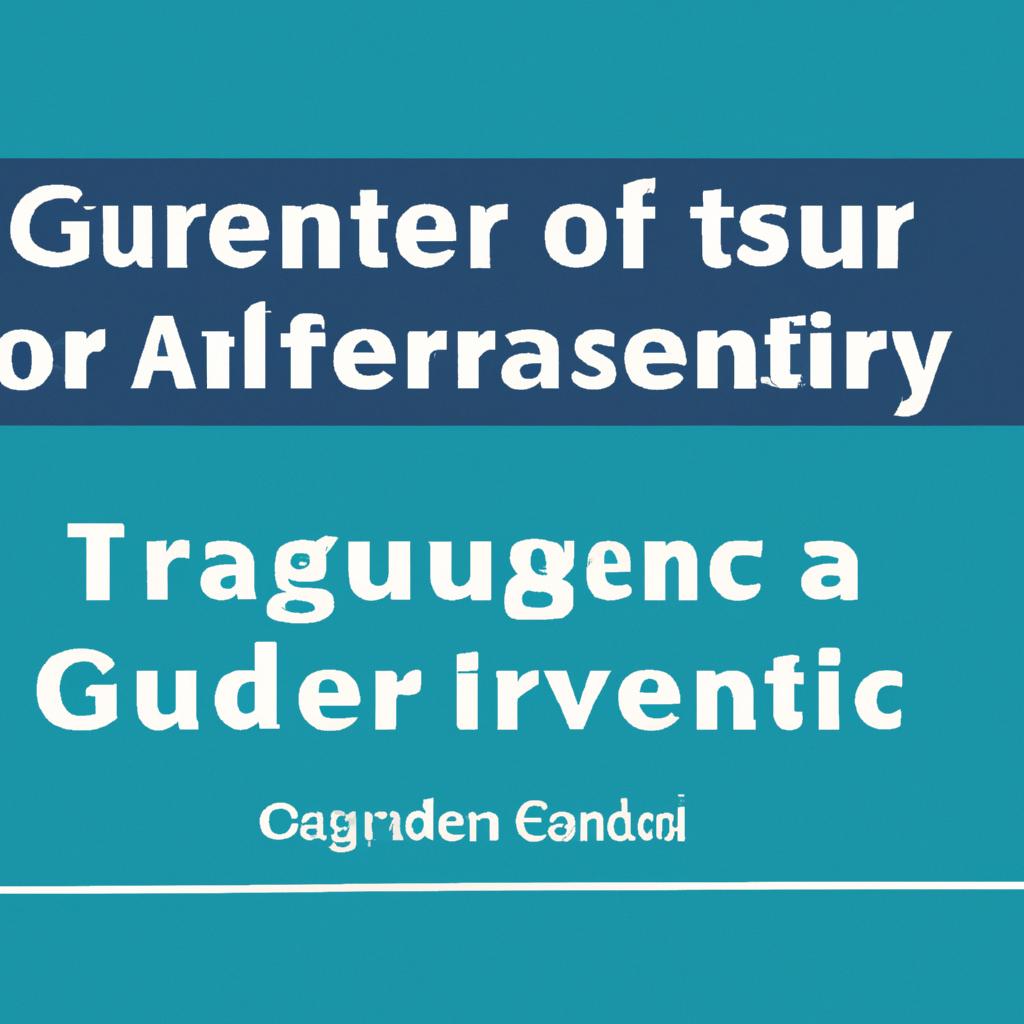In the intricate sphere of legal jargon and definitions, it’s common to encounter confusion when trying to distinguish between similar-sounding concepts. One such pair that often leads to misunderstanding is custody and guardianship. At first glance, these terms may seem synonymous, but a more detailed analysis reveals significant differences in their legal connotations. This article aims to explore the subtleties of custody and guardianship, illuminating their respective roles and responsibilities in the legal guardianship of minors.
Deciphering the Legal Distinctions between Custody and Guardianship
When it comes to the care and welfare of a child, it’s vital to comprehend the legal subtleties between custody and guardianship. Although these terms are frequently used interchangeably, they have unique differences that can influence the rights and obligations of those involved.
Custody:
- Generally awarded to a parent during a divorce or separation agreement.
- Encompasses the right to make crucial decisions about the child’s upbringing, such as education and healthcare.
- Does not necessarily revoke the other parent’s rights or duties.
- Can be granted jointly or solely, depending on the situation.
Guardianship:
- Bestowed by the court to someone who is not the child’s biological parent.
- Offers legal authority to make decisions on behalf of the child, akin to a parent.
- Can be temporary or permanent, depending on the circumstances.
- Often comes into play when the child’s biological parents are unable to provide adequate care.
Crucial Points to Distinguish Custody from Guardianship in Family Law
In the realm of family law, it’s crucial to understand the differences between custody and guardianship. While these terms are often used interchangeably, they carry different legal implications and responsibilities. Here are some key points to help you distinguish between custody and guardianship:
- Legal authority: Custody pertains to the legal right to make decisions about a child’s upbringing, including their education, healthcare, and overall welfare. Guardianship, conversely, involves assuming the legal responsibility for the care and protection of a child.
- Duration: Custody is typically awarded to one or both parents during a divorce or separation proceeding. Guardianship, on the other hand, may be granted to a non-parent or grandparent in certain situations where the child’s parents are unable to provide care.
- Responsibilities: Custodial parents bear the day-to-day responsibility for the child’s care, while guardians may have more long-term decision-making authority, such as financial management or estate planning on behalf of the child.
Considerations when Determining Custody versus Guardianship
When navigating the intricate legalities surrounding custody and guardianship, it’s essential to consider a variety of factors before making any decisions. While these terms may seem similar, they actually differ in significant ways that can impact the care and welfare of a child.
One factor to consider is the level of authority granted to the individual in question. Custody typically involves decision-making power over the child’s daily life, including matters such as education, healthcare, and upbringing. Conversely, guardianship often involves broader authority, encompassing not only the child’s day-to-day needs but also their financial assets and inheritance.
Another important consideration is the duration of the arrangement. Custody arrangements are often temporary and can be modified or revoked based on changing circumstances. Guardianship, however, is typically more permanent and can only be terminated under specific legal conditions, such as the child reaching adulthood or the guardian being deemed unfit.
Seeking Legal Advice to Navigate Custody and Guardianship Decisions
When dealing with legal matters involving children, it’s important to understand the differences between custody and guardianship. While both terms may seem similar, they actually entail distinct responsibilities and rights.
Key Differences Between Custody and Guardianship:
- Custody typically refers to the legal right of a parent to make decisions regarding the upbringing of their child, including issues related to education, healthcare, and religious upbringing.
- Guardianship, on the other hand, involves a legal relationship where a non-parent assumes responsibility for a child’s well-being and may make decisions on behalf of the child.
It is crucial to seek legal advice when navigating custody and guardianship decisions, as the laws surrounding these issues can be complex and vary by jurisdiction. Consulting with a well-versed attorney can help you understand your rights and options, ensuring the best outcome for you and your child.
In Conclusion
While custody and guardianship may seem similar, they actually involve distinct legal rights and responsibilities. Understanding the differences between the two can help ensure that children are cared for in the best way possible. So whether you are navigating a custody agreement or seeking guardianship, it’s important to know the nuances of each to protect the well-being of those in your care. Thank you for reading, and may your legal journey be clear and peaceful.

Understanding the Difference: Is Custody the Same as Guardianship?
When it comes to legal terms regarding the care and responsibility of a child, two terms often come up: custody and guardianship. While these terms may seem similar, they have distinct differences that are important to understand. In this article, we will explore the definitions of custody and guardianship, as well as the key differences between the two.
What is Custody?
Custody refers to the legal right of a parent to make decisions for their child and to care for their child on a day-to-day basis. There are two types of custody: physical custody and legal custody.
- Physical custody: This refers to where the child lives on a day-to-day basis.
- Legal custody: This refers to the right to make decisions about the child’s upbringing, including education, healthcare, and religious upbringing.
What is Guardianship?
Guardianship, on the other hand, is when a person who is not the child’s parent is given legal responsibility for the child. This can happen in situations where the parents are unable to care for the child due to factors such as death, illness, or incarceration. A guardian has the legal authority to make decisions for the child, similar to legal custody.
The Key Differences
While custody and guardianship may seem similar, there are some key differences between the two:
| Custody | Guardianship |
|---|---|
| Usually granted to parents | Granted to a non-parent |
| May be temporary or permanent | May be temporary or permanent |
| Can be shared between parents | Can be shared between guardians |
Benefits and Practical Tips
Understanding the differences between custody and guardianship can help individuals make informed decisions about the care of a child. Some practical tips to keep in mind include:
- Consulting with a family law attorney to understand your rights and obligations
- Documenting any agreements or court orders related to custody or guardianship
- Seeking mediation or other forms of dispute resolution if conflicts arise
Case Studies
Let’s consider two hypothetical scenarios to illustrate the difference between custody and guardianship:
Scenario 1: Sarah and John are divorced, and they have joint legal custody of their two children. This means they share decision-making authority regarding their children’s upbringing.
Scenario 2: Amy is the legal guardian of her niece, Emily, whose parents are unable to care for her due to substance abuse issues. As Emily’s guardian, Amy has the legal responsibility for her well-being.
First-hand Experience
It’s important to hear from individuals who have firsthand experience with custody or guardianship. Here are some testimonials:
“Navigating the complexities of custody agreements was challenging, but having a knowledgeable attorney by my side made all the difference.” – Mary, a mother of two.
“Becoming a guardian for my nephew was a big responsibility, but seeing him thrive in a stable environment has been incredibly rewarding.” – Tom, a legal guardian.
while custody and guardianship share similarities, they are distinct legal statuses that have different implications for the care and responsibility of a child. By understanding these differences, individuals can make informed decisions that serve the best interests of the child. If you have any questions or need further clarification on this topic, don’t hesitate to seek legal guidance.


